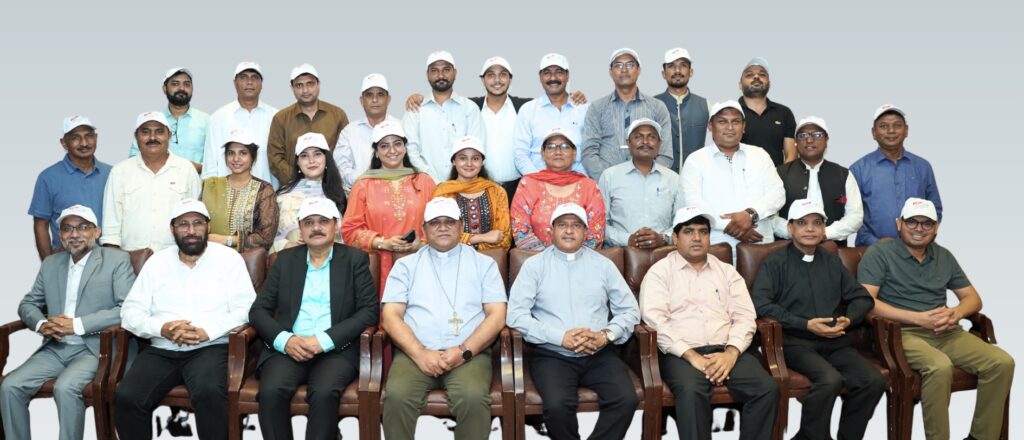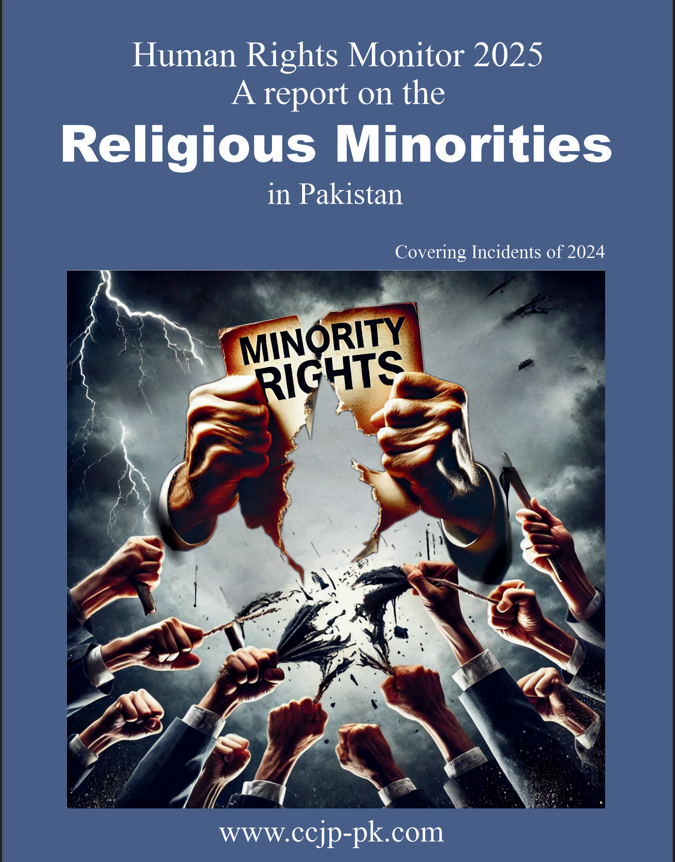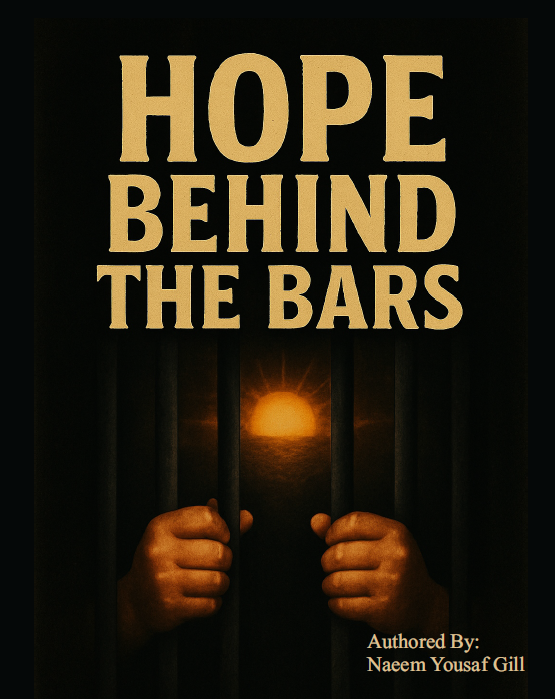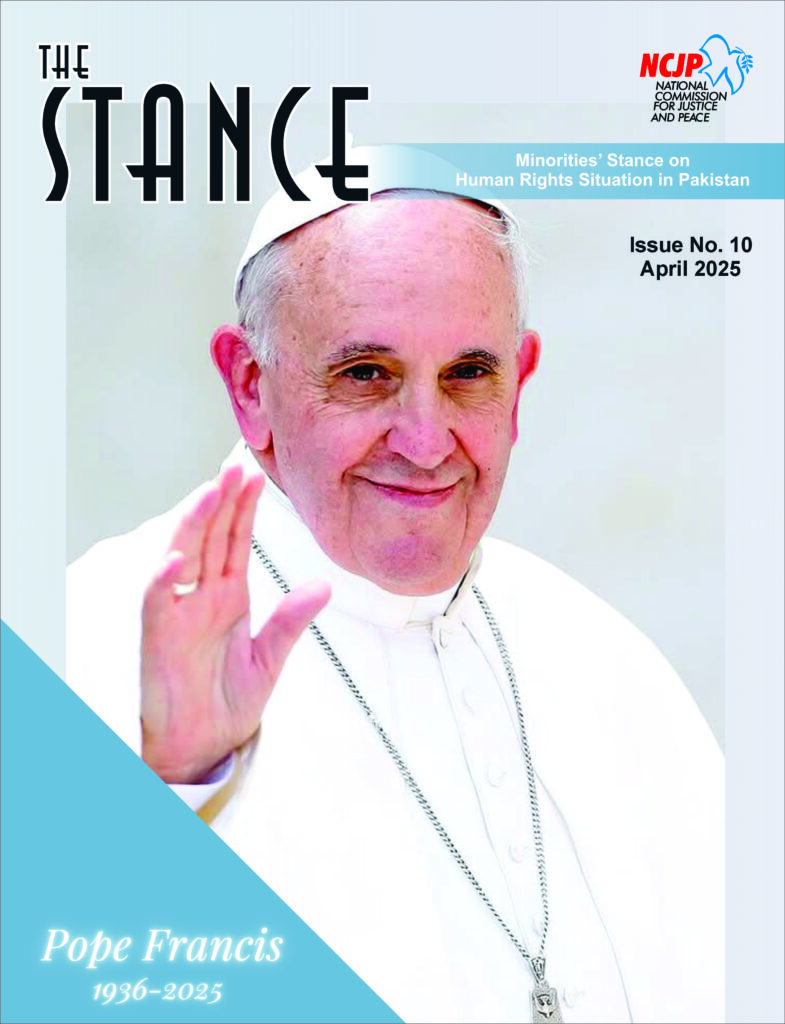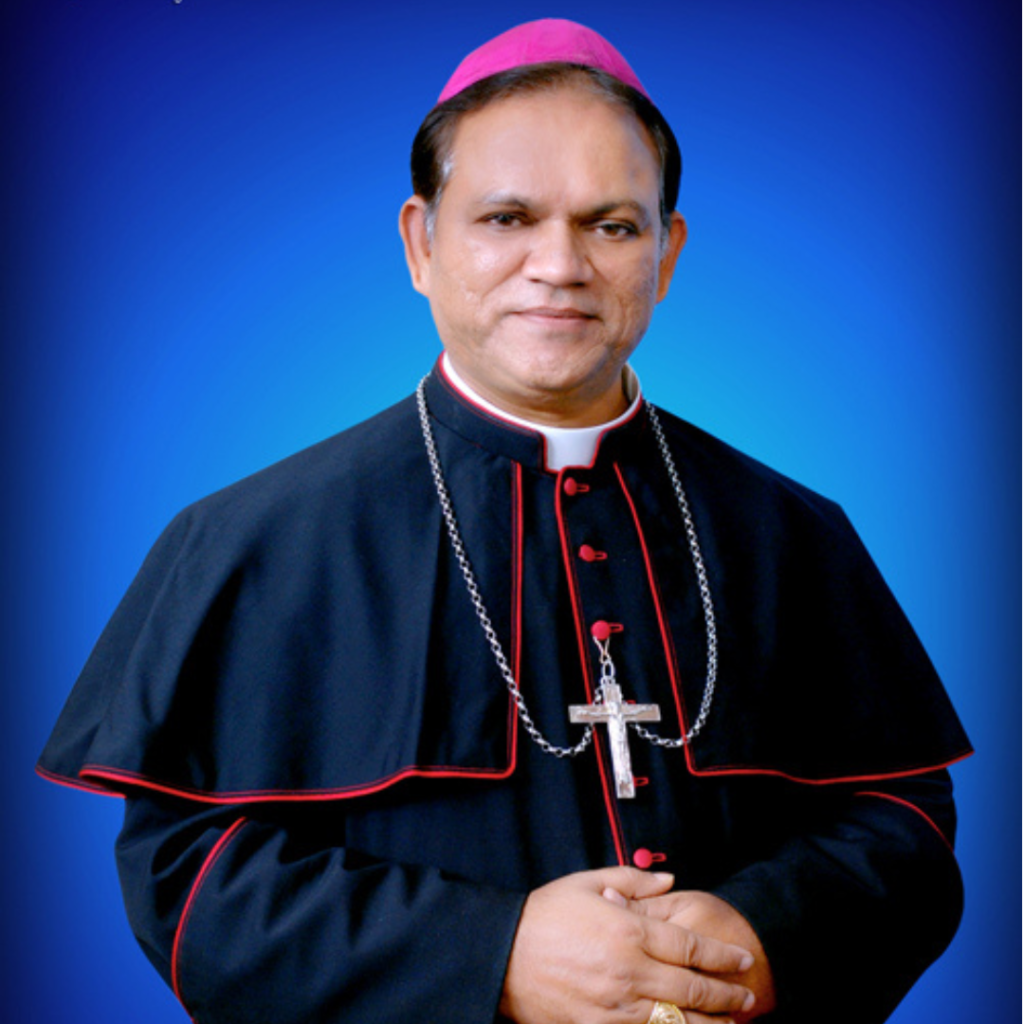
Bishop Samson Shukardin Chairman (CCJP)
was consecrated bishop on 31st January 2015. He was ordained a priest on 10th December 1993. Since then he has served from 1993 to 1996 as assistant priest in Gujrat, Diocese of Islamabad-Rawalpindi; from 1996 to 2004 as Procurator of the Franciscan Province; from 2004 to 2008 as Guardian of Franciscan Order and President of the Conference of Major Superiors of Pakistan; since 2008 as pastor of St. Elizabeth Church, Hyderabad, and Diocesan Director of the Catholic (National) Commission for Justice and Peace. Since 2010, he has been the Vicar General of the Diocese of Hyderabad.
Message
Having ethnic, cultural, and religious diversity since its inception, Pakistan is home to approximately 70 different language-speaking populations, each rooted in distinctly vibrant provincial cultures. To nurture and protect this pluralism, a robust human rights framework is essential, not only to curb hate speech but also to prevent the misuse of laws that could incite violence in society. Given their significant influence, religious leaders hold a primary responsibility to foster a pluralistic society and counter extremist narratives. Their active role is crucial for ensuring peaceful coexistence and building a cohesive community.

Fr. Bernard Emmanuel
National Director of Catholic (National) Commission for Justice and Peace
Message
“During recent decades, conflicts in Pakistan have deepened divides, polarizing society along regional, religious, communal, and sectarian lines, thereby straining the state-citizen relationship. Encouraging dialogue and repairing relationships are pivotal to the long-term peacebuilding process. An inclusive and holistic approach is essential for fostering durable peace. Peacebuilding is more crucial than ever as we aim to strengthen the attitudes, institutions, and structures that shape and sustain peaceful societies. Together, let us commit to nurturing understanding and cooperation to build a harmonious future.”

Mr. Naeem Yousaf Gill
Executive Director of Catholic (National) Commission for Justice and Peace
Message
All human beings are born free and equal in dignity and rights.”—Article 1,(UDHR). Dignity is not just a value but the very foundation of all human rights. At the heart of human rights are the principles of equality and non-discrimination. Discrimination occurs when individuals are prevented from enjoying their human rights or other legal entitlements equally due to unjustified distinctions in policy, law, or treatment.In Pakistan, discrimination against minorities permeates every aspect of social life, rooted deeply in the nation’s most authoritative document, the Constitution. Only by ensuring inclusivity and equality can we truly honor the spirit of the UDHR. Let us all contribute towards this goal by advocating for systemic changes that embrace diversity and foster equality.


